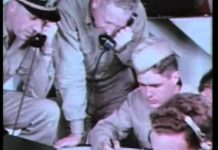In a historical unraveling that transcends the boundaries of time, we delve into the riveting details of the Malmedy Massacre Trial of 1949. Led by a subcommittee of the Senate Armed Services Committee, this in-depth exploration, devoid of theatrics, takes us into the corridors of justice where charges of atrocity, allegations of mistreatment, and the complex tapestry of post-war legal procedures intertwine.
The year is 1949, and a trio of senators—Raymond E. Baldwin, Estes Kefauver, and Lester O. Hunt—assume the role of investigators, appointed to consider Senate Resolution 42. Their mandate: to scrutinize charges surrounding the conduct of the prosecution in the Malmedy atrocity case. However, it becomes clear from the outset that this subcommittee’s purpose is legislative, not judicial. Their task is not to retry cases or act as a court of appeals but to dissect the investigative and trial procedures, aiming to offer recommendations for future improvements.
The narrative unfolds in distinct phases, each shedding light on different facets of this complex historical episode. The initial phase exposes charges of physical mistreatment and duress on the part of the War Crimes Investigation personnel. As the investigation progresses, a second phase emerges, focusing on the intricacies of law and legal procedures, seeking to evaluate their propriety and identify areas for enhancement to meet future requirements.
Yet, as the layers are peeled away, a third phase surfaces—one that injects a note of concern into the proceedings. This unexpected dimension delves into the motivations behind the concerted efforts to discredit American military government at large, using the war crimes procedures as a particular pawn in a broader plan. The subcommittee’s findings reveal a narrative far more intricate than a mere examination of legalities; it becomes a story of political maneuvering and the intersection of justice and broader geopolitical ambitions.
In navigating this historical labyrinth, the article does not seek to pass judgment but to present a nuanced understanding of a pivotal moment in post-war justice. The Malmedy Massacre Trial, often overshadowed by the specter of Nuremberg, emerges as a testament to the complexities and challenges inherent in navigating the aftermath of conflict. It prompts reflection on the delicate balance between seeking justice for heinous acts and ensuring that the pursuit itself does not become a pawn in a larger political game.

































